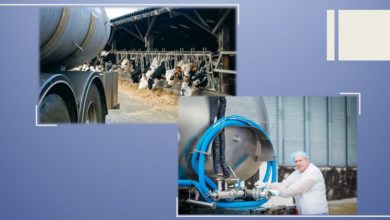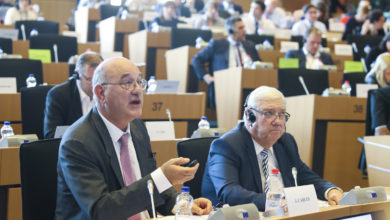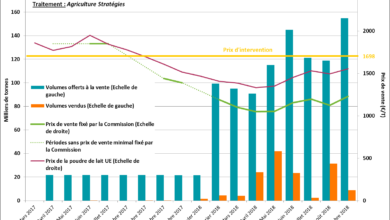
A note from the government in the run-up to the negotiation of the multiannual financial framework of the European budget, for the period 2020-2026, makes a lot of noise. He is accused of marking a major break with the usual strategy, sacrificing part of the CAP budget. However, nothing allows to affirm it.
Panic in the agricultural Landerneau! The position expressed in the recent note of the French Government would sacrifice the CAP budget, especially for the development of a European defense project!
Yet, the French government’s note is a general framework that expresses France’s European ambition, while highlighting the need for a better added value of community spending and the importance of developing access to resources. own as a replacement for the VAT resource.
It also has the advantage of giving a new direction for the future of the CAP, bringing all the ingredients of a real ambitious and positive reform! At least for those who do not have a partisan approach.
In his speeches at the Conference of Ambassadors and at the Sorbonne, President Macron clearly defined his desire to revive a European project currently in difficulty. The short note of the French government is an extension of these speeches and draws a little more the contours of a CAP reformed for a Europe out of years of political trampling.
The CAP for 25 years is in an institutional inertia maintained by the European Commission and relayed by this or that representation of the agricultural world: that of the pre-eminence of the principle of decoupling, which means that subsidies to farmers are paid regardless of any criterion based on farmers’ production, producer prices or income level.
In fact, the amount of aid distributed each year in each Member State and for each farmer is completely defined in advance for the seven years of programming. The predictability of public spending can certainly be a sought-after characteristic, but in this case, we must above all speak of a logic of annual budget consumption, which is much less defensible.
In essence, the CAP has been reduced in its redistributive dimension, with a very low Community added value: each Member State distributes a defined envelope even before the negotiations on the objectives and tools have been completed. begin !
Therefore when the French government advocates for a real European added value, making the budget more flexible and more responsive, we can only hope for a thorough reform. Europe would thus question the principle of decoupling that all the other countries in the world have abandoned or never sought to apply!
Not to mention that, like housing aid, CAP aid also suffers from capitalization and capture effects which seriously affect their usefulness.
Also, there is nothing to reproach for a proactive stance that does not reduce the CAP at the level of its budget alone, but which seeks to increase its effectiveness and efficiency by displaying sovereignty and food security. as attributes of a Europe world power.
In the spirit of the French government’s note, it is therefore essential to implement an income safety net, such as counter-cyclical assistance and to think of crisis management tools that are more responsive and more effective. Similarly, the crisis reserve created for the current program, but ultimately never used, must really be reformed to become an integrated reserve with multi-year perspectives and serving as a buffer in the event of a lasting crisis.
By taking more liberty with the doctrine of decoupling directly from the 1990s, Europe will assert an indispensable strategic autonomy, while giving itself the means to face the agricultural crises and to ensure the ecological transition of our agriculture.
In the end, the budget debate and the principles of sound management of public money and Community added value must constitute the first round of the negotiation of the next CAP.
Jacques Carles, Chairman of Agriculture Strategies
Frédéric Courleux, Director of studies of Agriculture Strategies
This article was also published in Les Echos on 01/12/2018, and is available at the following link :
https://www.lesechos.fr/idees-debats/cercle/cercle-178020-le-gouvernement-francais-pose-les-bases-dune-reforme-budgetaire-de-lue-qui-pourrait-etre-benefique-a-la-pac-2144522.ph Stratégies












